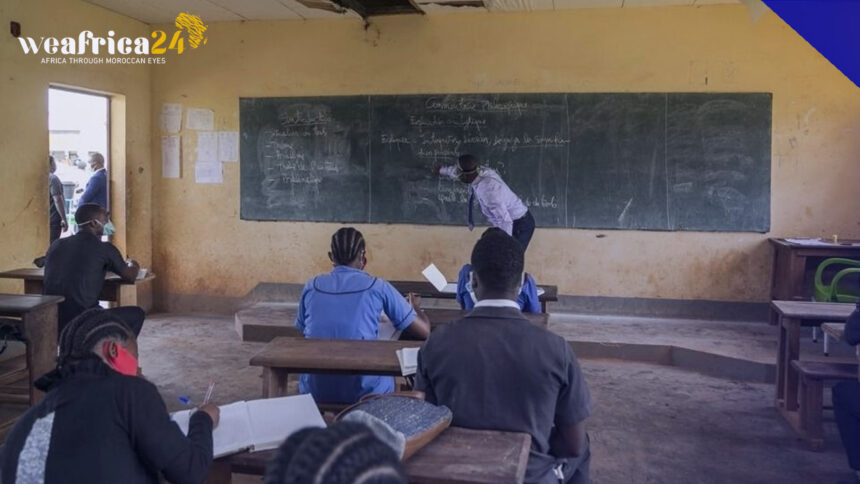The educational landscape in Cameroon is marked by a recurrent disruption of school years due to teachers’ discontent with what they perceive as inadequate government measures to address their numerous grievances. The prospects of a “National Education Forum” hold great promise for various teacher unions, as it aims to establish the foundation for a new educational policy. In this context, the impatience and skepticism of educators are met with reassurances from the government.
The Government’s Performance: “Insufficient”
The government’s performance has been assessed as “insufficient” by teacher unions, prompting them to once again include strikes in their agenda for the 2023 school year, which commenced on September 4th. Consequently, secondary school teachers have resumed the “chalk down” movement. In practice, some teachers report to their respective schools but refrain from conducting classes, while others choose not to attend school at all.
Three weeks into the protest, the scale and impact of this peaceful demonstration, which has spread across a significant portion of the national territory, have not yet reached the magnitude of the 2022 strike led by the OTS (On a Trop Supporté) movement. The 2022 strike disrupted the educational system to the extent of threatening an entire academic year. At that time, the government made commitments to address the grievances of the disgruntled teachers.
As September rolled around, only a few of these promises had been fulfilled according to the teacher unions. These accomplishments included salary updates with consideration for promotions, payment of salary arrears, and full salary payments for newly recruited teachers, among other advancements. However, teachers, while acknowledging these measures, remain hopeful for a revised timetable for arrears payments, extending until 2025, according to a government proposal.
Beyond these immediate demands and the government’s short-term responses, certain unions are advocating for structural reforms. One such reform pertains to the effective implementation of the “Special Status for Teachers,” a document that was signed back in 2000.
Education in Crisis: The Persistent Predicament
For many years, the education sector in Cameroon has been marred by recurrent crises. The government appears to be powerless in delivering lasting solutions to the issues raised by teacher unions and various protest movements. The President of the CSP explains: “Teachers’ grievances are recurring because for years, across all generations, the government has failed to provide appropriate solutions to the multiple demands continually raised by professionals in this field. Even in my retirement, it is astonishing that I recognize myself in all of their demands. It is simply a lack of political will.”
Many teachers are pinning their hopes on the organization of a “National Education Forum” (NEF). Since 2018, the convening of this significant gathering of education stakeholders has seemed increasingly imminent, especially as expectations of an accelerated schedule in this regard grew following the outbreak of the Anglophone crisis at the end of 2016. This crisis, sparked in part by teacher protests, has further underscored the urgency of addressing the longstanding issues plaguing the education sector.







